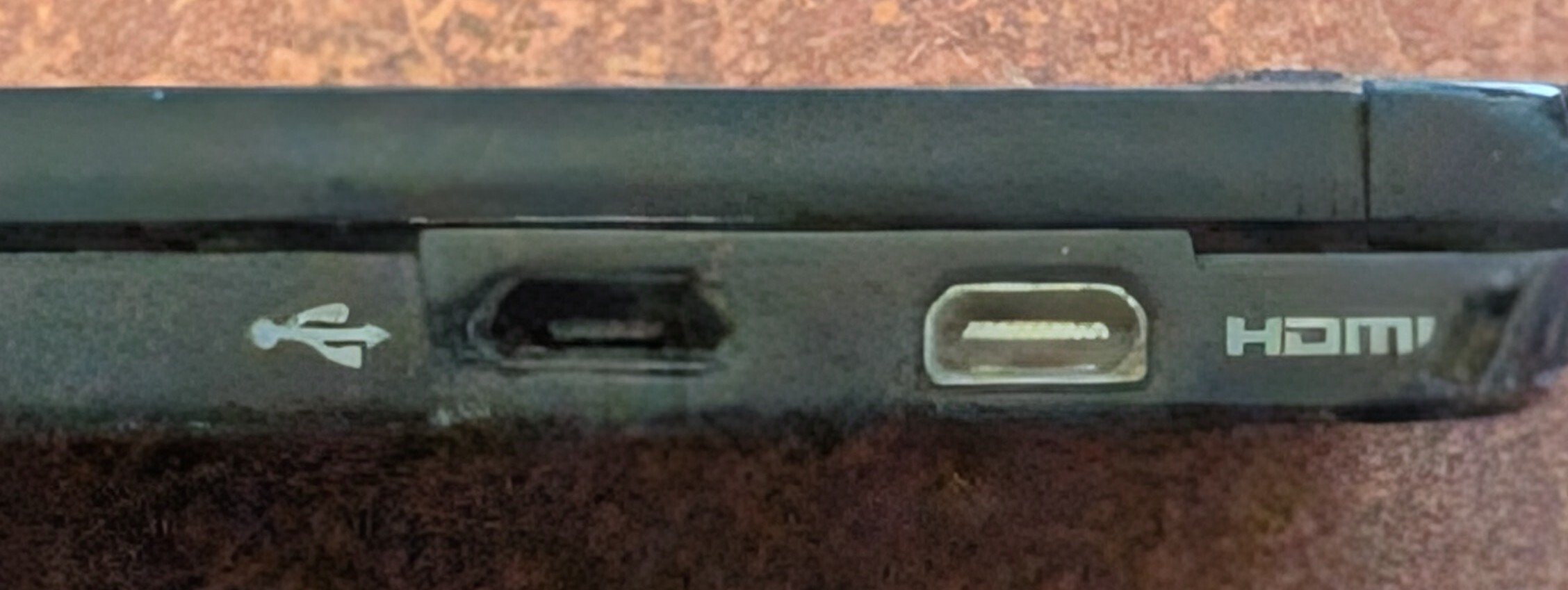Wait, you guys don’t use VGA for charging your devices? It literally stands for Very Good Ampere!
Yesterday, I plugged a usb A memory stick into my phone using a USB-C OTG adapter. I had used it before and knew it worked, but this time, it said that it was charging my phone, and I couldn’t figure out how to make the flash drive be recognised as storage.
I spent a while troubleshooting and then saw a suggestion to unplug the adapter and rotate it (i.e. do the thing that you do when you try to plug in a USB A but it’s the wrong way round (except this was obviously usb C)). It worked. I was nonplussed but happy it worked.
This post reminded me of that
wow. I’m honestly super curious as to why that happened. the USB c was designed to be quite symmetrical so it doesn’t make a difference in how you plug it in, each connector is still touching the same type of pin. I wonder if it something with the adapter itself and the fact that it has to translate from USB a? glad you got it figured out but damn that’s an interesting technical gremlin
Yeah, it’s a bit baffling. The person who suggested it said that the adapter they were using was a cheap eBay thing, and they blamed that for it. My adapter is the Samsung branded one that came with my phone. Thinking about that again has got me wondering if it’ll be reproducible; I don’t know whether it would be more or less baffling if it were reproducible
found this decently relevant stack exchange on USB c symmetry: https://electronics.stackexchange.com/questions/685358/why-does-this-usb-c-connection-only-work-in-one-connector-orientation
based on my (non electrical engineer) read of the top response, it seems like the pins that connect for power delivery communication (how the device tells how to treat the device that’s being plugged in) aren’t symmetrical and can sometimes misbehave, but again, I don’t really know what I’m talking about lol
fun rabbit hole tho, thanks!
“fun rabbit hole tho, thanks!”
That’s tremendously relatable and made me smile, so thanks in turn
I don’t know if it’s a build thing depending on the cable brand or maybe an issue going from A like you suggest but the gf and I both use A to C cables in our cars, I have an iPhone and her a Samsung and we’ve both noticed cables having a ‘favorite’ side which they’re not supposed to.
I remember learning about the 5v pin when working in an IT service desk. Displayport cables (at least the old ones, i dont know if the new ones have it) didnt have the 5v pin so when converting to hdmi, hdmi had to be the source/input and the displayport had to be the output. Unless the converter had a usb or power cable input but we didn’t buy those as standard.
The number of tickets that people were faffing around trying to work out why the cable wasn’t working that were solved by me spending 5 minutes doing a google search was embarrassing. And i still had to tell them again, all the time.
Learning about that lead to learning about all different display conversion cables and which worked and which didnt. And the various types of dvi cables.
All interesting stuff.
Maybe you can tell me why I can’t find a usb-c to dual link DVI cable that is actually dual link and also didn’t lie about being dual link even when it explicitly said it was dual link on the box.
I think you need an active usb c to dvi-d to get thisnto work. Unfortunately ive not come across this need before but i have looked into it and it would seem the only options to get the full resolution and refresh rate of dual link dvi is woth an active usb c to dual link dvi cable OR with a usb c to displayport cable then a display port to dual link dvi cable
If usb c is the source the above should help.
If dual link dvi is the source then you need to make sure that the usbc end supports display port alt mode. Otherwise it the same as above. Dvi to dp to usbc.
But this is all info i just read and may be wrong, and you also canr account for cheap converters lying about what they support.
Yeh I figured it needed to be active, couldn’t find any and the ones that claimed (and ultimately turned out to be lying) to be dual link weren’t active so unsurprising they didn’t work.
That’s a very interesting idea about the double conversion with displayport though, I never thought of that. Are the displayport to DVI dual link cables easier to get or are they unicorns as well?
We used displayport to dvi all the time in that job. Both dvi i and dvi d
The VGA port does have a 5V pin, but I wouldn’t suggest trying to charge a phone from it. It’s probably not intended to supply much current.
If you had an old Samsung android smartphone or select HTC Windows Mobile (win ce 6.1/6.5) phones, they had HDMI over micro USB.
Samsung phones are bloated as hell, but sometimes the bloat is useful. One thing I like about them is that you can plug just about any Samsung phone into a monitor and it will just work without a fuss. I keep an HDMI to USB-C cable plugged into the back of my TV because I can just plug my phone right into it to show something really quick. It’s so much faster and more convenient than fiddling with casting and its various issues.
I think most flagship phones do that now. Myotorola edge has Desktop and Streaming modes. But back in the late 2000’s this stuff was amazing.
You’d be surprised. My last phone (OnePlus 6T) had USB-C but was a 2.0 port in disguise with no extra capabilities beyond what USB 2.0 could already do.
But for what it’s worth, I buy new phones every 5-6 years and always buy them used + a couple of generations behind, so what’s new to me might have been around for awhile. I simply remember being able to connect a Samsung phone to a TV long before I could do that with any other phone brand.
I have a bunch of old phones with mini HDMI lol

That USB port is more blown out than the fourth page of a porn hub search.
LMAO, it is (relatively) an ancient phone. It’s a Motorola Droid X circa 2010
The port is so worn I mistook it for a USB 3 port.
I bought a Verizon Droid around 2011 (X? Turbo? Bionic? Who can remember). I used my mini hdmi port exactly once. Moved into my new house. ISP wouldn’t be out until the next day, so I ran Netflix from my phone to my TV. For many hours. Phone was extremely hot.
My work has some old Pi’s, and they use micro USB to HDMI.
The tech in phones back then was wild.
Those are some anxious electrons.
The HDMI-to-VGA adapter needs 5V on its micro USB port, then it may work (if the adapters are correct and the phone or tablet supports MHL). 😂
The monitor practically became a charging light
There’s no way that charges.
Sure there is. A display signal is essentially just current through specific lines. The way the current is routed makes no sense, but there will definitely be current running through the wires. The only thing needed is for the charging pin of the micro-usb to be connected to any vga pin that transfers current. The rest is just the magic of conducting wires.
It won’t charge quickly though, I’d expect it’d take hours just to charge like 20%.
Wrong way though. The source feeds to the display not the other way around. The is no downstream voltage from a vga monitor.
Page 553 of this document (third page in as it starts at the appendix) says that pin 9 is optional, but if used, is 5V
+5v to the monitor, not from. Even if it was from, I can’t imagine it being rated for enough current to make charging feasible.
Well, it’s hooked up to a laptop, so, yeah, VGA out.
Its not hooked up to a laptop. Its hooked up to a display. It says so in the message
I guess the vertical and horizontal sync are +5, but how would that be connected to the +5 on USB? Seems unlikely but possible I guess?
Nah, pin 9 is reserved and not needed, but when implemented, offers 5 volts power.
Fair enough. Still nuts.
I love random conversion stuff. But it always makes me worried when USB is so often the core. I really think exposing the serial bus and power simultaneously to the user in a simple plug and basically hoping it doesn’t blow up.
Cries in Electronic Engineer






